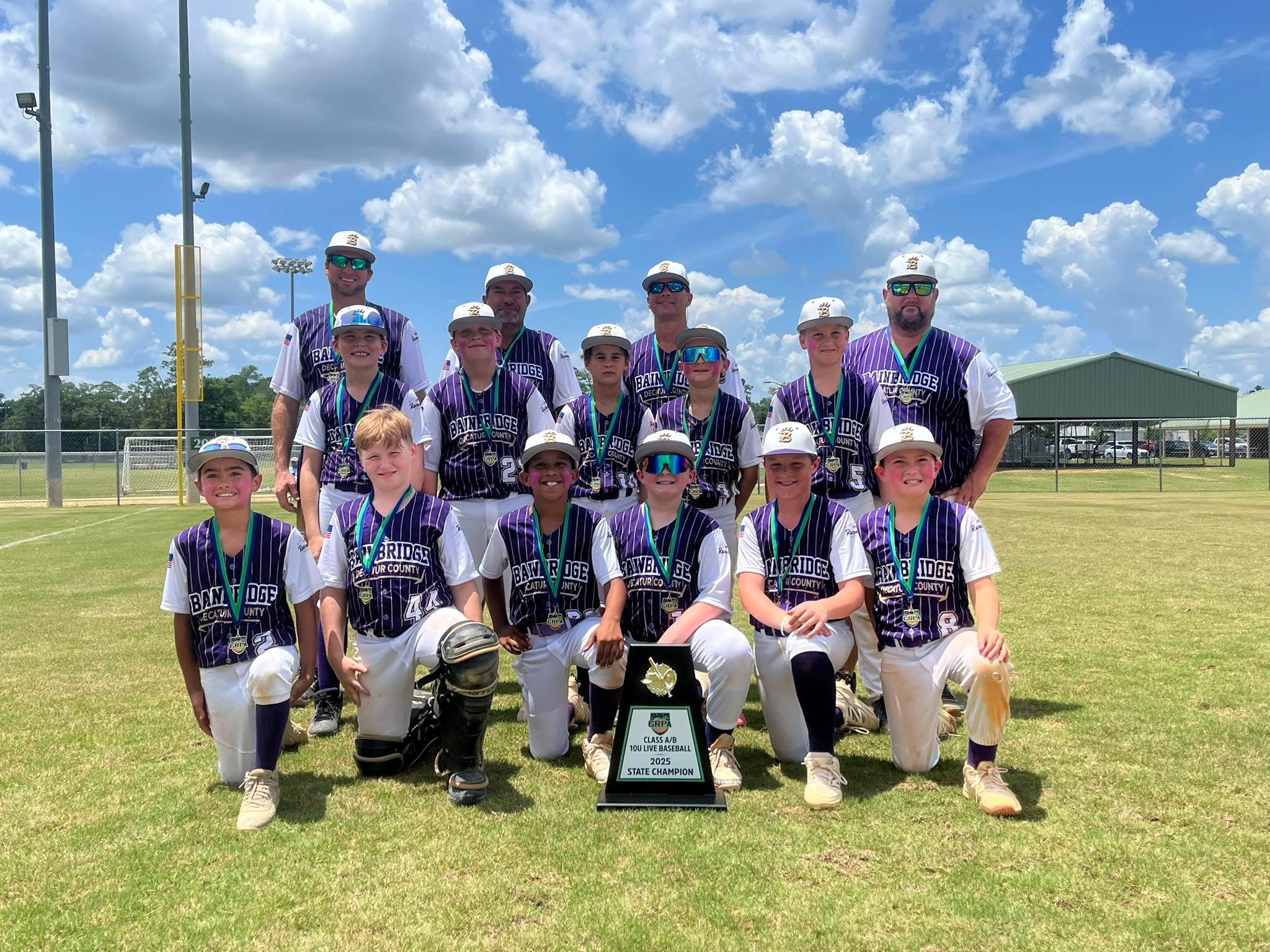Water plan – The ‘3Cs’ strategy
Published 6:04 pm Tuesday, December 15, 2009
As the governor’s of Alabama, Florida and Georgia met Tuesday about water allocations among the three states, Georgia Gov. Sonny Perdue announced on Monday recommendations from a water contingency task force.
The task force recommended a mix of actions known as the “3Cs”—conserve, capture and control. These include the following:
conserve—aggressive conservation measures and reducing loss from leaks
capture—expanding existing reservoirs and building new ones
control—restrictions on outdoor water use and requirements for plumbing upgrades.
“These leaders from across Georgia looked all possible solutions and let the facts drive their recommendations,” said Gov. Perdue. “They have done an outstanding job, and I commend them for their hard work and commitment to Georgia. I look forward to continuing to work with the task force members as we work together to ensure sufficient water resources for Georgia’s future.”
After receiving a final round of feedback on the draft recommendations, the task force will present final recommendations to the governor later this month.
“We are vitally concerned about this pivotal moment in our state’s history,” said task force co-chair John Brock, chairman and CEO of Coca-Cola Enterprises. “We firmly believe this crisis can be dealt with, but it will take bold leadership and aggressive action. We are recommending specific steps to the governor, but our work is not over. We will continue to work with the governor as these recommendations are considered by the Georgia General Assembly.”
The task force is part of the governor’s four-pronged approach to dealing with Judge Paul Magnuson’s July ruling that would deny metro Atlanta the right to use Lake Lanier as a source of drinking water in 2012. One of the governor’s strategies includes contingency planning if the judge’s ruling stands, which is the focus of the task force.
U.S. District Court Judge Magnuson ruled that the original intent of Lake Lanier—which was not to supply water for Atlanta-metro area’s 4 million people—must be honored and future water withdraws must receive the approval of Congress.
The ruling stems from a 2003 water-sharing agreement with the Army Corps of Engineers that would have allowed Georgia to take far more water from Lake Lanier for its drinking supply over the coming decades. The deal would have allowed Georgia’s withdrawals to jump from about 13 percent of the lake’s capacity to about 22 percent.
Florida and Alabama contested the pact, saying the lake was initially built for hydropower and providing water to metro-Atlanta was not an authorized use.
Magnuson cited a lengthy historical record of testimony before Congress and Corps of Engineers documents to establish that serving Atlanta’s water needs was only an incidental purpose for the lake. He noted that Georgia officials argued as much to avoid having to pay for part of the project when the reservoir was built in the 1950s.
“There’s no single magic solution for making sure we have enough water,” said task force co-chair Tim Lowe of Lowe Engineers. “We need a mix of options that follows our 3C’s strategy—conserve, capture and control. This includes aggressive conservation, fixing leaks, expanding existing reservoirs and building new ones. But it’s important for people to understand that even after doing all of that, we can’t close the gap between the water we have and the water we need by the three-year judge’s deadline. Lake Lanier is still the most cost-effective and environmentally friendly option, and needs to be part of the solution.”
An analysis by Boston Consulting Group, which provides technical expertise for the task force, shows that having a few additional years would allow Georgia to dramatically increase the number of options that could realistically be implemented from a cost and timing perspective.
“The more time we have, the more productive we can be,” Brock added. “While we cannot close the water gap by 2012, there are additional contingency options that can be implemented by 2015 and 2020. Emergency solutions are extremely costly, but having a few more years opens up a whole range of additional possibilities.”
The meeting held Tuesday in Montgomery, Ala., was called after Judge Magnuson’s ruling was made and Georgia failed to challenge the ruling.
The states’ governors have been negotiating the resource allocations of the Apalachicola, Chattahoochee and Flint rivers for more than 18 years.
Florida Gov. Charlie Crist called the ruling “a monumental milestone” in the tri-state battle over water.
“The Judge’s decision allows the governors to come together to reach an agreement outside of the court system,” Crist said. “I look forward to working with Govs. (Alabama’s Bob) Riley and Perdue to find a solution that will be beneficial for all of our states.”
One of the those talks involved former Florida Gov. Jeb Bush, current Alabama Gov. Riley and Perdue in April 2003 at Bainbridge’ Chamber of Commerce building on the Flint River, where the three had hoped to pave the way for a settlement in the Water Wars.
“This issue will affect Georgia for decades to come,” Lowe said in Mondays news release. “In fact, our consultant’s analysis shows that metro Atlanta alone would take a $26 billion hit to its economy every year if we do nothing, and that would ripple throughout Georgia. We cannot allow that to happen.”





